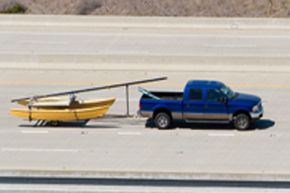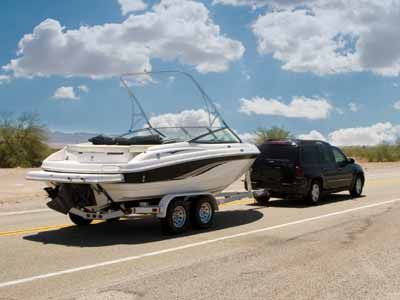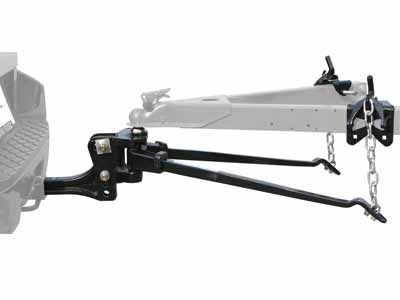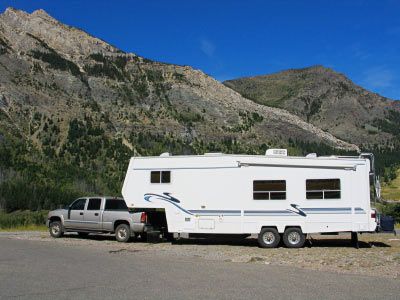It's been a long week, and you're ready to hit the road on a much needed fishing trip with the guys. Luckily, your pickup is full of gas, your gear is secure in the back and rush hour traffic is starting to die down. Then your friend arrives and starts to hook his 20-foot (6-meter) boat onto the hitch. You start to tell him it's probably not a good idea for your truck to haul quite so much weight but think better of it. Those towing capacities are understated anyway, right? Besides, you're not going terribly far, and you've used your truck to tow before.
Bad move.
Advertisement
A car's gross vehicle weight rating (GVWR), also referred to as the truck towing capacity or vehicle towing capacity, is serious business. A towing capacity rating is based on the maximum gross vehicle weight (GVW) (the weight of the fully loaded vehicle or trailer, including cargo and passengers) the vehicle is designed to carry. Exceeding it can not only damage your vehicle, but it also puts your life and the lives of others in jeopardy.
Understanding (and heeding) your truck's towing capacity -- specifically its GVWR and GVW, which are sometimes referred to as gross trailer weight rating (GTWR) and gross trailer weight (GTW) -- is one of the most important things you need to do before heading to the great outdoors.
Towing is no small feat and often requires a special beast to get the job done properly. Among other things, tow vehicles need stronger frames, suspension systems, engines and axles to handle larger loads. Just like you wouldn't dare cross a bridge made out of Legos for fear it would collapse under your weight, you shouldn't force your 1992 Ford Ranger to carry a boat that eclipses your truck's towing capacity rating.
If you're simply not satisfied with the simple version of "do not exceed the GVWR under any circumstances," turn the page to learn what could await the rebel in you.
Advertisement




